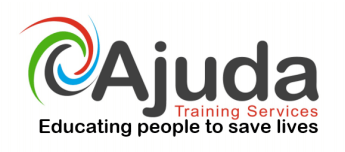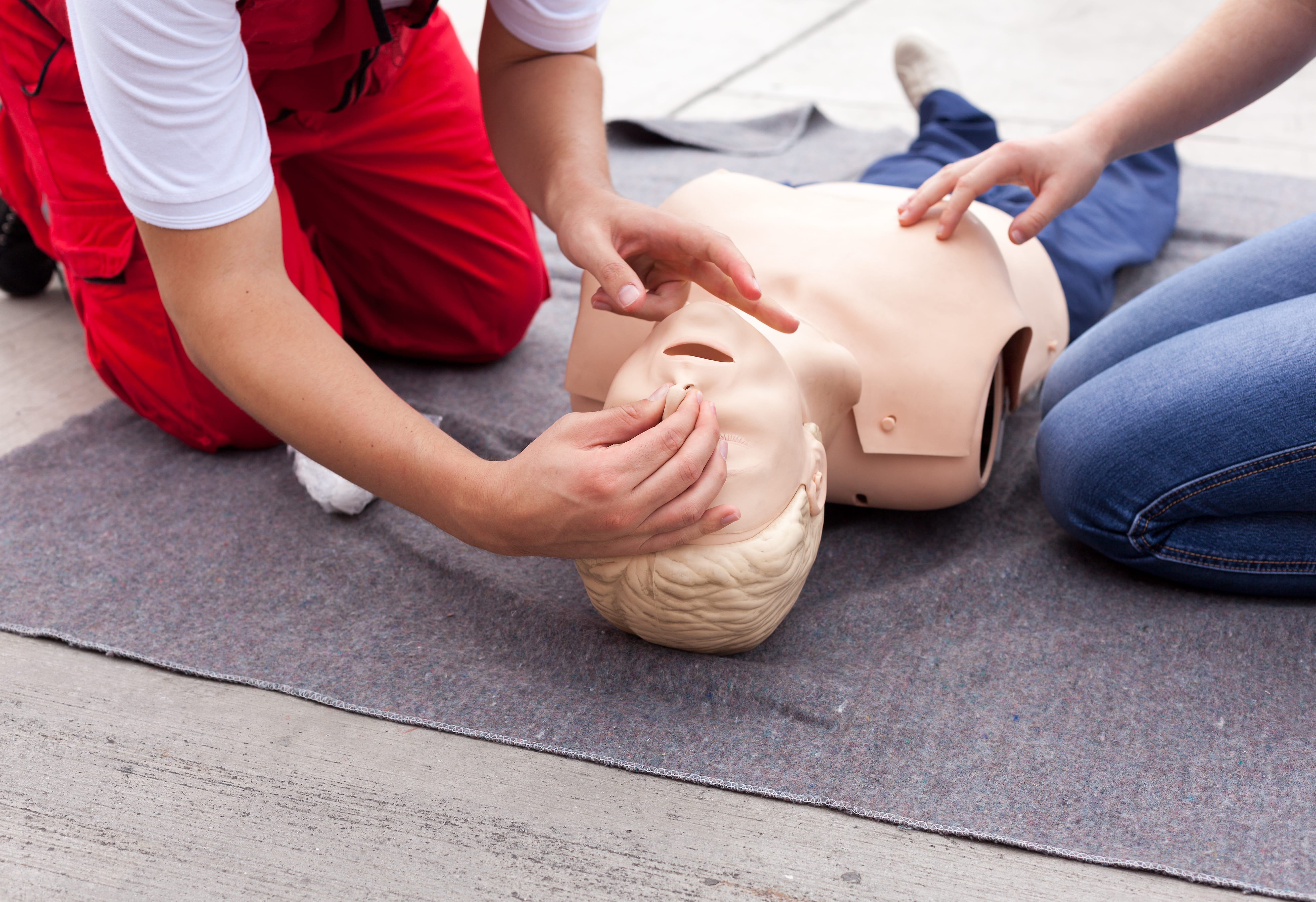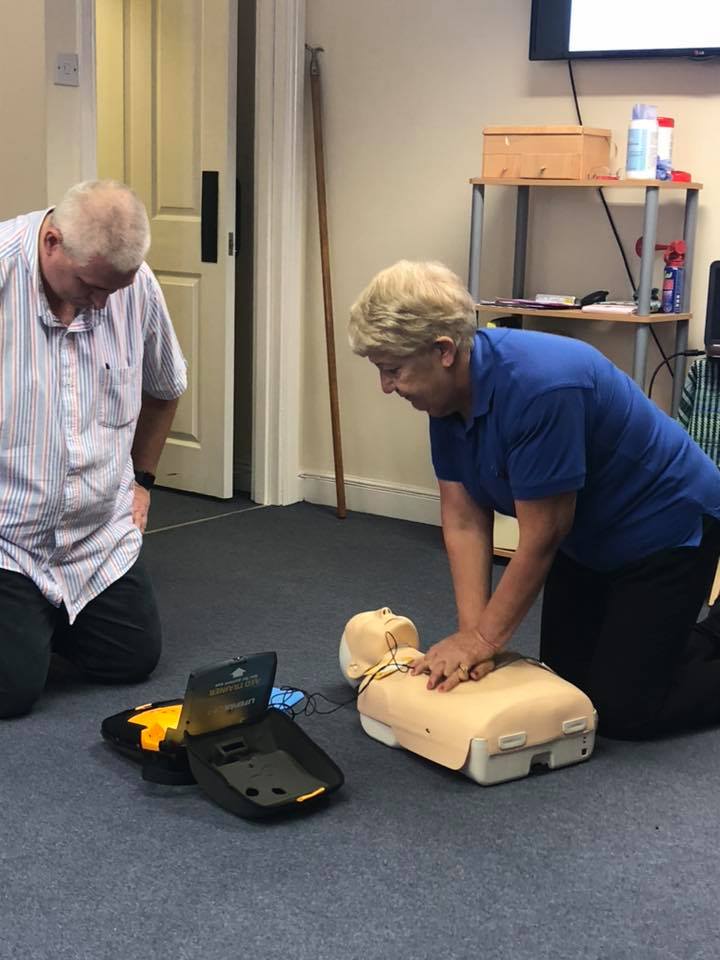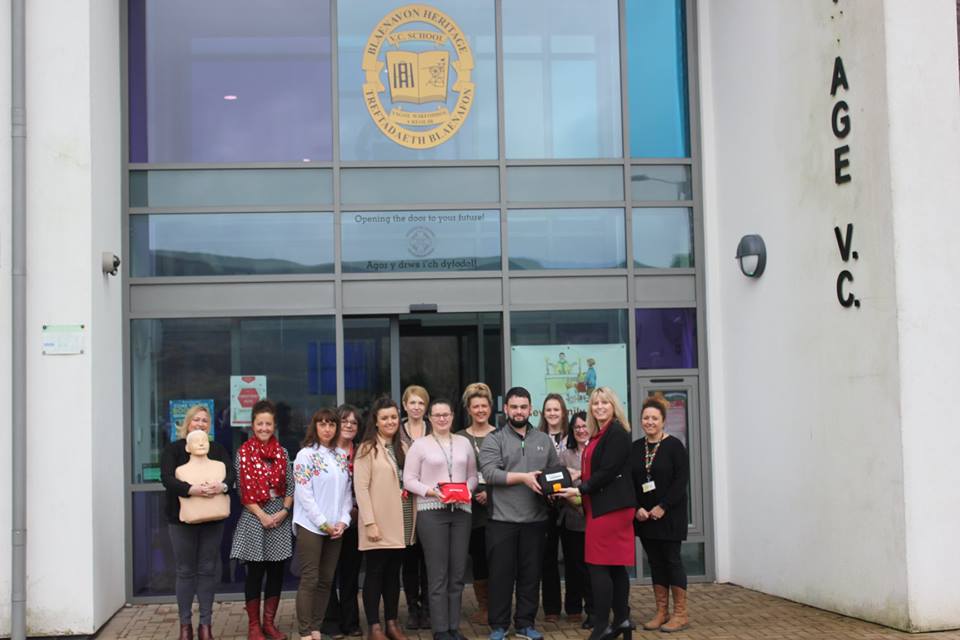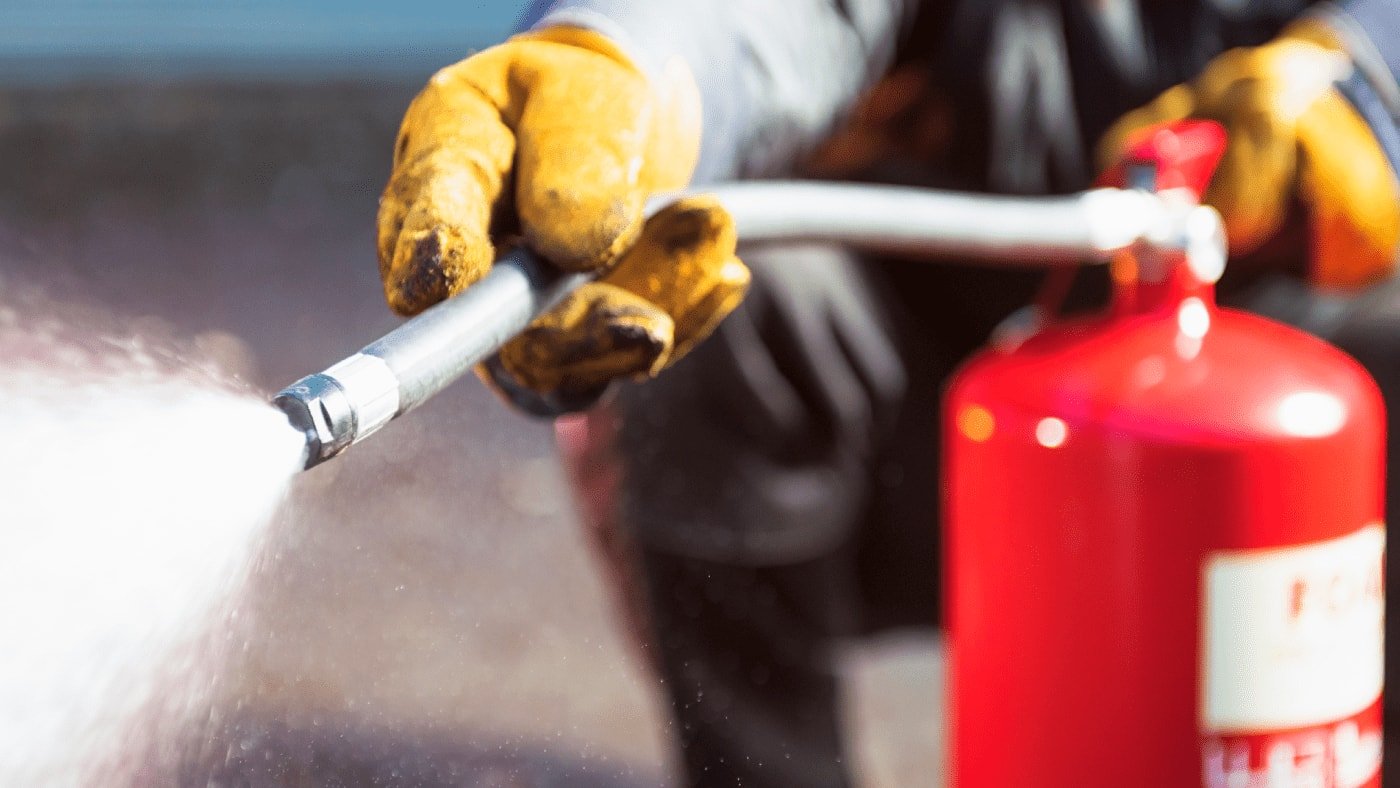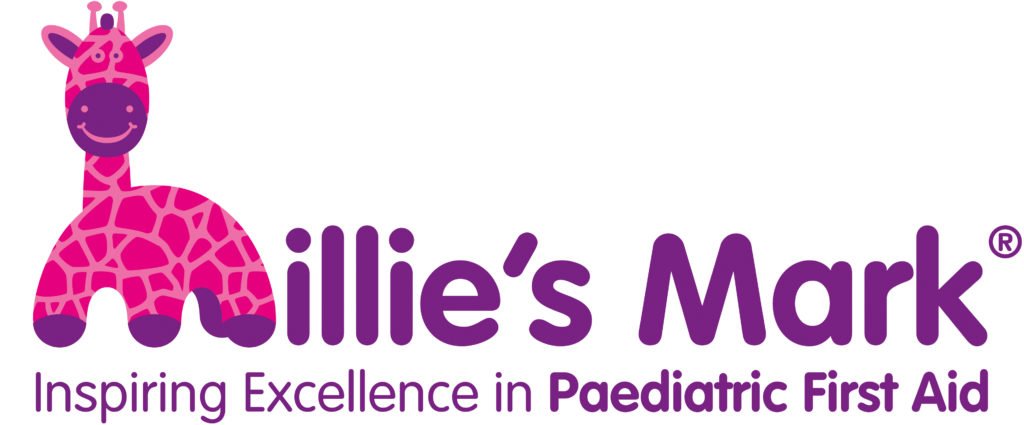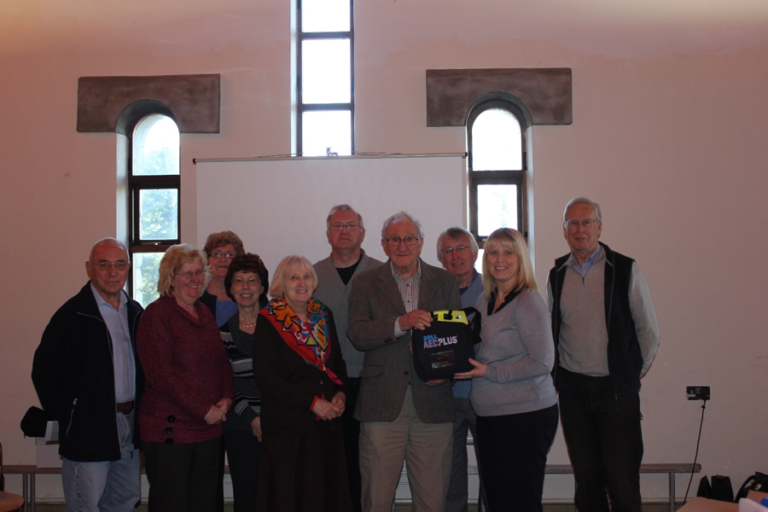With colder weather on the way, it’s really important to remain fit and healthy at this time of year to help your body fight off the common colds and viruses that are circulating. Eating well, wrapping up warm and carefully planning your journeys are simple ways stay safe during winter. This blog highlights some of the first aid tips you may require over the winter months and potential hazards to look out for. It is essential to maintain body heat during winter to avoid hypothermia. Ideally, the temperature indoors should be at least 18 degrees. If you cannot afford to keep the heating on all winter (it can really add up!) then keep adding the layers, have accessible blankets around the house and hot water bottles which are particularly useful and a cost-effective way to keep extra warm indoors. If you are venturing outside, ensure to wrap up warm and add layers such as, hats, scarves and gloves to prevent you from getting too cold. Unfortunately, hypothermia is a huge danger at this time of year. The number of hypothermia deaths has doubled over the last five years. It is really important to learn the signs of hypothermia which include pale and cold skin, shallow breathing, a weak pulse and disorientation. If you suspect someone is suffering from hypothermia, then it is vital to encourage the to undertake the following: – Slowly restore warmth and get indoors if they are not already – Begin CPR if necessary – If they are conscious, give them a warm drink such as – Keep their body temperature up by wrapping them in blankets – Wear several light layers rather than one chunky layer – Regular hot drinks and meals – Be very careful around open fire – Close the curtains after dark to keep away drafts – Keep your hands clean to reduce germs spreading – Stay active – Keep windows closed at night As mentioned in the introduction, cold weather can have a detrimental impact on your health. There are many preventative measures that can be taken to ensure that you are fit and healthy throughout the winter months and avoiding sickness: – Enquire about getting the flu jab – Take multivitamins – Maintain a healthy diet – Have hot meals and drinks where possible – Invest in a hat, scarf and gloves and a good coat – Exercise and keeping active helps to maintain body heat amongst many other health benefits When the temperature drops to below 8 °C some people particularly vulnerable people such as young children, people with existing health conditions, people with a low income and elderly people become at risk of various problems: – Heart attack – Stroke – Pneumonia – Falls and injuries – Hypothermia During the winter, travelling can become particularly hazardous. Take extra care when walking outdoors as footpaths can become slippery. Invest in a sensible pair of shoes with good grip to help to prevent slips and trips. If you are driving, it is important to be aware that the roads can become slippery and dangerous. It is a good idea to have a winter first aid kit stocked in the car including blankets and water in case you break down. Other driving essentials during this time of year include an ice scraper, winter screen wash, de-icer and a foil blanket. As well as ensuring that you take all of these measures to stay healthy, please look out for vulnerable people and do what you can to help them to keep warm. Perhaps consider donating blankets, hot water bottles and tinned food to those in need. Drive calmly and safely to prevent being involved in an accident. If you are interested in learning more about learning basic first aid skills, please book yourself a place on one of our open first aid courses.

Cold Weather
Keep warm
Further tips for keeping warm and staying safe:
Keep healthy and fight the cold
Travel safely
We hope that this blog has given you some basic ideas about how to stay safe during winter.
Tag: ajuda
10 Benefits of First Aid Training in the Workplace
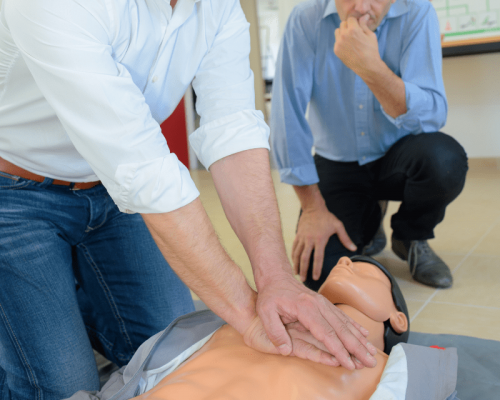
The office can seem like a safe place to work, but, there are risks you wouldn’t think of until they happen. An accident can occur at any time and if it did, who in the workplace is trained to help? It is a legal requirement as a company to ensure your employees receive immediate attention. Here are 10 reasons why you should consider First Aid Training for employees.
1. It can save lives
This may seem like the most obvious reason, but it is proved that first aid saves lives. If there is an accident in the office is anyone trained to come to the rescue? First aid training gives your staff the confidence and ability to react immediately to an incident, injury or illness. CPR (Cardiopulmonary Resuscitation) has been reported that many lives have been saved due to fast reaction CPR. This would have been given during critical and life-threatening accidents, injuries or health complications in the workplace.
2. Reduce the number of workplace accidents
First aid training helps employees learn to be more conscious of safety in the workplace, leading to a reduced number of accidents and injuries. Minimizing risk to workers and decreasing workplace incidents is a benefit to everyone, but for employers it has implications within all aspects of business operations. All employees become more safety aware, helping to bring down the number of accidents.
3. Positive work environment
By making first aid training available to employees, employers can show their workforce that they care about providing a safe work environment. First aid training provided in the workplace can even be used as an excellent team-building exercise and morale booster. Employee morale is an integral part of any company. High morale leads to positive attitudes and positive attitudes lead to positive results. The happiness and wellbeing of your employees will help you build a strong relationship, ultimately resulting in a better working environment. First aid training will help ensure employee health and safety in addition to enhanced wellbeing and morale.
4. Your company will be safer place to work
Many large companies give first aid as part of employee training; this is a very wise option because it guarantees they can all look out for one another. If an accident happens at work; employees may be able to prevent further injury to the victim of the accident. First aid courses in the work place promote safer practice amongst employees.
5. First aid kits are used properly
Not only will your employees know exactly what should be in the first aid kit and be able to maintain it properly, they’ll be able to use them effectively in an emergency. They will know where to access it quickly – again saving time and reducing the impact of the illness or injury. First aid trainees know exactly what’s in their first aid kits, how to use the contents, and the various ways to react in an emergency. In a beneficial way, it makes each employee an unofficial health and safety risk manager.
6. It can reduce recovery time
Rapid reaction to illness or injury, before further aid such as an ambulance arrives can not only save lives, but in addition, will reduce recovery time of the patient. If that patient is a member of staff, that means they’ll be back to work quicker, with less impact on the business.
7. It can keep employees safe outside of the workplace
It’s not just in the workplace where good first aid training is paramount – employees will have those skills for life, especially if you maintain ongoing refresher courses. This means they can treat themselves, their family and friends and the public effectively in an emergency.
8. It’s a great team-building exercise
When your staff get the opportunity to learn a skill together, one that will help them look after one another, it brings them closer together. Many teams have reported more awareness of their co-workers wellbeing following first aid training.
9. It gives your employees confidence and clarity during an emergency
First aid training doesn’t just teach your staff how to treat patients in need of first aid, it also gives them confidence and effectively manage an emergency without fear, confusion or overwhelm.
10. The cost of a First Aid at Work Training course is nothing compared to that of potentially saving a live.
Providing first aid and CPR training doesn’t cost much, but it will go a long way to ensuring workplace health and safety.
If this has given you something to think about we have many Training Courses available at Ajuda Training Academy, take a look at our course calendar, give us a call on 02920 576883, or email admin@ajuda.org.uk
Or you can book a course online here
Follow us on Facebook or Twitter and see our tips and advice on all things #FirstAid
Ajuda launch a Mental Health conference
Talking Mental Health is a conference that shall be taking place on World Mental Health Day, Thursday 10th October 2019.
Dawn and Rachel are very passionate about sharing knowledge and advice about Mental Health, so this day will be filled with just that.
The conference will be held from 10am to 4pm at Cardiff City Stadium and will include;
- Keynote Speakers
- A day of Inspiration
- Free Resources
- Expert Knowledge
- Professional Advice
- Success Stories
- 2 Course Lunch
- Refreshments
Early bird tickets: £75 +VAT
Regular price: £95 +VAT
GDPR training for individuals and businesses
What is GDPR?
- On 25th May 2018, GDPR will be replacing the Data Protection Act 1998.
- It enforces the most stringent regulations to date on how people’s personal data is lawfully collected, processed and stored.
- We are often faced with news of data thefts and breaches in privacy.
- GDPR is expected to set a new benchmark for consumer rights.
- It aims to hold any companies accountable for breaching these rights.
- The law has introduced hefty penalties and fines for organisations that do not comply with the changes.
- Or businesses that suffer data breaches.
Do you understand how the introduction of GDPR in the UK might impact your business?
It’s not long until GDPR is put in place in the UK. if, like many, you have been worrying about how the changes might impact your business, we advise that you take some time over the next month to clue up.
At Ajuda, we have recently launched a Data Protection in the Workplace course. You can find this online
If you or your organisation handles personal information about individuals, you have legal obligations to protect that information.
The benefits of good data safety are numerous and include, good business practice, the protection of people’s rights and the protection of your organisations reputation.
In recent years some companies and individuals have experienced serious legal consequences for data protection breaches and this highlights why it is so important to get it right.
Training should be a vital part of any company’s data protection policy.
Access our GDPR training course here.
Our online training course will guide you through what’s changing and what your business needs to do to ensure that it is GDPR friendly.
Ajuda has a huge variety of other online training courses to offer. Please see here to see what other online training courses you may be interested in. You can access the first module of any course for free.
You can get further information about our online training courses by contacting admin @ajuda.org.uk or 029 2057 6883.
Time to Talk Day 2018

On the 1st February 2018 it is National #TimeToTalk Day. Time to Talk Day is a day designed to encourage the nation to break the silence around mental health problems and the stigma that is consequently attached to it. It’s easy to think that there is no right place to talk about mental health. But, the more we talk about it, the better and healthier life is for all of us. Get involved with Time to Talk Day by having a conversation about mental health and showing that we can all talk about this subject anywhere – in a lift, at the gym or even up a mountain!
Ajuda are avid supporters of mental health campaigns such as Time to Talk – we believe strongly that not only is it important to look after our own mental health, it is important to look out for people around us such as colleagues, family, friends and even strangers.
Why?
 A whopping one in four people are affected by mental health problems at some point during their life. This means that right now, one of your friends, colleagues or loved ones is currently affected. Despite how common mental illness is, people are still afraid to talk about it. Unfortunately, this often means that people suffer alone because they are too afraid to speak out about their health problems.Time to Talk day aims to get people talking about mental health and through this, stop the stigma, aid recovery, improve relationships and break down stereotypes regarding something that can affect us all. Together we can stop people from feeling isolated or judged when they are experiencing a mental health problem. Too many people with mental health problems are made to feel isolated, worthless and ashamed. Time to Talk Day is a chance for all of us to be more open about mental health.
A whopping one in four people are affected by mental health problems at some point during their life. This means that right now, one of your friends, colleagues or loved ones is currently affected. Despite how common mental illness is, people are still afraid to talk about it. Unfortunately, this often means that people suffer alone because they are too afraid to speak out about their health problems.Time to Talk day aims to get people talking about mental health and through this, stop the stigma, aid recovery, improve relationships and break down stereotypes regarding something that can affect us all. Together we can stop people from feeling isolated or judged when they are experiencing a mental health problem. Too many people with mental health problems are made to feel isolated, worthless and ashamed. Time to Talk Day is a chance for all of us to be more open about mental health.
How?
This year, on Time to Talk Day, we would like to urge everyone to open the conversation on mental health wherever you are. At Ajuda, we will be sure to have a positive and honest conversation in the office about mental health. We will also be talking about mental health across all our social media platforms throughout the day and joining in the conversation online.
Training
If mental health is something that you are interested in learning more about, Ajuda offer Mental Health Awareness courses. For more information about this please call us on 029 2057 6883.
Useful Resources
For further information about Time To Talk Day please visit www.time-to-change.org.uk
If you are concerned about your own or somebody else’s mental health please visit this page on Mind’s website for information about how to deal with this.

Dawn Evans to talk at The National Education Show
Dawn Evans is also set to talk at The National Education Show in November 2018. Dawn established Ajuda 10 years ago after her young daughter choked on a sweet. She realised the huge importance of first aid training; if she did not have essential first aid skills, her daughter could have died. After this incidence, Dawn set out to become a qualified first aid trainer and started teaching parents, teachers, creche assistants, schools and colleges first aid skills. First aid and teaching people how easy it is to save a life has become a passion for Dawn.

Ajuda specialises in a variety of health and safety related courses in order to keep schools safe. Ajuda facilitates affordable courses in schools throughout the UK and are specialists in onsite training during school inset days.

At The National Education Show, Dawn will be holding a seminar introducing how to perform CPR and use a defibrillator in a school environment. Parents count on school staff & teachers to keep their children safe – in class, in the halls, and on the athletic fields. By attending Dawn’s seminar, delegates will take a step towards becoming advocates for automated external defibrillators. Delegates will learn, on a basic level, how to protect children and staff from sudden cardiac arrest and potentially death. Being equipped with this life-saving knowledge also ensures that other teachers are protected in the school environment.

During the seminar, Dawn will be showing attendees the basic skills required to save a life, including the use of CPR and the external defibrillator. To book your ticket to attend Dawn’s seminar, please see here.

The National Education show is an all-day education conference in South Wales that plays host to over 4,000 teachers, 100 companies and 40 professional speakers. Last year, Ajuda ran a competition at the show for attendees to win a life-saving defibrillator for their school. The lucky school that won the competition was Blaenavon Heritage VC Primary School. We are thrilled to announce that this year we will be running the same competition. For more information about our stand please read our exhibitor spotlight here.

Please see here to find out more about Dawn. To book your ticket for Dawn’s seminar please see here.
Dawn Davies to talk at The National Education Show
One of our fantastic trainers has been selected to speak at the prestigious National Education Show in November.

Dawn Davies, a retired qualified nurse, has a wealth of experience in the field and in the classroom. Dawn will be delivering a seminar on identifying, diagnosing and treating ongoing medical conditions affecting children. Dawn regularly delivers seminars and training to teachers and students regarding medical conditions, such as asthma, diabetes and anaphylaxis.

Medical conditions are a huge worry for any parent and teacher. During the seminar Dawn will show attendees how to recognise and treat a child or teacher suffering from a variety of medical conditions. Dawn will share her wealth of experience and explain how to keep children safe in the classroom, whilst enjoying their school years with a controlled medical condition.
To book your ticket to attend Dawn’s seminar, please see here.

The National Education Show is an all-day education conference in Wales that plays host to over 4,000 teachers, 100 companies and 40 professional speakers. Last year, Ajuda were sponsors/supporters of the show and exhibited in the upstairs hall. We ran a competition at the show for teachers to win a life-saving defibrillator for their school. We’re thrilled to announce that this year we will be running the same competition. For more information about our stand please read our exhibitor spotlight here.

Facing being made redundant? Training opportunities for you.
With recent news from local companies such as Brains Brewery of jobs under threat and pending redundancies on the horizon, we have written this blog to signpost accessible opportunities that are available to you here in Wales if you are made redundant.
 Being made redundant can be a time of great stress and unease. On the plus side however, it can open up new and exciting opportunities for you – you could be right around the corner from a whole new career change. Is it possible that you might want to retrain or add to your existing skillset?
Being made redundant can be a time of great stress and unease. On the plus side however, it can open up new and exciting opportunities for you – you could be right around the corner from a whole new career change. Is it possible that you might want to retrain or add to your existing skillset?
 There are many different routes that you can take when you have been made redundant. Our personal favourite? Retraining!
There are many different routes that you can take when you have been made redundant. Our personal favourite? Retraining!
In fact, one of our trainers received funding to retrain after an injury prevented her to continue her career as a nurse. After taking her training with Ajuda through funding, she became one of our brilliant regular tutors. Receiving funding helped her to develop both her career and as a person.
Been made redundant? How funding from the Welsh Government can help you through your redundancy: ReAct.
The Redundancy Action Scheme (ReAct) is a programme of funding for training provided by the Welsh Government for people facing redundancy who live or work in Wales. If you have been made redundant in the last 3 months and are currently unemployed, or, are currently under notice of redundancy, you will be eligible to ReAct funding. You are entitled to £1,500 worth of training to upskill or retrain to help you become employed. Additional funding can also be accessed to help towards extra costs associated with training such as, travel, accommodation, and childcare. This is only available to you if you have not undertaken any publicly funded training since being made redundant.
Ajuda Ltd specialise in providing training to individuals to increase their employment prospects. Every place of work requires or would highly benefit from employing somebody trained in first aid, fire safety, customer service and more. Furthermore, like our trainer, you could pursue a fulfilling career as a trainer. We offer a full range of accredited training to suit your individual needs. Each training programme can be individually tailored to ensure each individual has the best possible chance of regaining future employment.

If you would like to know more, please contact us on 02920 576 883 or email Daisy on admin@ajuda.org.uk for free advice and further information. You can also pop in to your nearest Careers Wales office for further guidance about the ReAct scheme.
Defibrillator delivered to lucky school by Ajuda
We are thrilled to announce that the winner of our free defibrillator competition that we ran at The National Education Show last month is Blaenavon Heritage VC Primary School. The defibrillator was delivered by our Managing Director, Dawn, on 21st November along with a practical demonstration of how to use it for the staff.
On average, defibrillators are worth between £1,000 – £1,500. The model that we have given as a prize is the LIFEPAK CR Plus AED. The school and the nearby rugby club had previously been fundraising for a defibrillator earlier on in the year but unfortunately, the fundraiser fell through at the last minute. Winning this prize has come as a very welcome surprise to all members of staff at Blaenavon Heritage VC Primary and to members of staff at the adjoining leisure centre. All staff, parents, pupils and members of the public in close vicinity can feel protected and assured that they are in a heart safe area.
“I am absolutely thrilled to be in a position where I can give away one of these incredible devices. I’m really passionate about introducing more and more defibrillators into public spaces and ultimately saving lives. Thanks to a life-saving defibrillator and CPR training, my father is alive today. The fact that the defibrillator can be accessed in both the school and the leisure centre in Blaenavon is fantastic news” said Dawn after delivering the special prize.
The defibrillator will be used to give a high energy electric shock to the heart through the chest wall to someone who is in cardiac arrest. Sudden cardiac arrest (SCA) can affect people of all ages, gender, ethnicity and fitness levels. According to Resuscitation Council UK, a staggering 270 children die every year from SCA at school whilst 12 people under the age of 35 die each week due to SCA. If CPR is performed alongside the use of a defibrillator within the first 3-5 minutes, survival chances increase from 6% to 74%.
These statistics highlight how crucial it is that schools are as prepared as possible to help somebody who has suffered a cardiac arrest. With their previous first aid training and their new defibrillator, Blaenavon Heritage VC Primary School is now one of the safer schools in Wales. Having a defibrillator on-site means that both the staff and the pupils are protected whilst at school. We are delighted to have played a part in creating a new heart safe area in Wales and are dedicated to introducing defibrillators into as many public spaces as possible.
Have you spotted a defibrillator in your local area? If so, let us know or send us a picture on Twitter @ajuda_training.
How safe is your building?
In light of last weeks tragic event in London, we have decided to focus this week’s blog on how to ensure that your building is as fire safe as it can be. Following on from our last blog regarding the importance of Fire Drills in the workplace, we will be highlighting prevention and protection measures that you can take. In a time where many people will be feeling incredibly worried about how to protect their buildings from fire, Ajuda will be offering a 20% discount off any of our in-house and our online Fire Safety courses.
Prevention
Fire prevention is the act of stopping fires from occurring. It is just as important to have a Fire Prevention plan in place as safety measures in the actual event of a fire.
Fire prevention measures may include matters such as:
– The prohibition of smoking on the premises.
– Adequate cleaning of work areas – keeping them clutter free. Bad housekeeping can not only cause a fire and help it spread, it can also hinder safe evacuations, obstruct access to firefighting equipment and obstruct fire exits.
– Avoiding the use of portable heaters and coolers.
– Preventing the accumulation of easily ignitable rubbish or paper.
– Regular risk assessments.
– Put in place security provisions that may help to reduce the risk of an arson attack.
– Positioning of heat sources to prevent contact with combustible material such as paper.
– Regular maintenance programmes of electrical equipment and wiring.
– Positioning of heaters and other machinery so that ventilators aren’t obstructed.
– Report electrical hazards.
– Never block sprinklers, firefighting equipment or emergency exits. Observe clearances when stacking materials.
– Ensure at least one person in the building is trained in how to use a fire extinguisher correctly.
Basically, fire prevention is focused on the principle of keeping fuel sources and ignition sources separate. If something creates heat, keep things that burn away from it.
Protection
Fire protection can save lives and minimise the amount of damage when a fire does occur. Some fire measures are built into a property whereas others can be introduced later (sometimes as a result of a fire risk assessment). There are two types of fire protection measures, either active or passive controls:
An Active Control Measure requires an action by somebody or something (e.g automated system) when a fire is detected. Examples include:
– Fire alarm systems
– Smoke detectors
– Emergency lighting
– Sprinkler systems
– Fire extinguishers, blankets and hoses
A Passive Control Measure are usually physical features that have been designed to make a building safer. Examples include:
– Compartmentation (e.g. fire-resistant walls, ceilings and doors to restrict fires from spreading)
– Fire exits
– Multiple escape routes and refuges
– Clear signage and emergency lighting
If you would like to take advantage of our current discounts please click here for our online training portal and here for our in-house fire safety course.
Millie’s Law keeping children safe
Millie’s Law means that First aid training is to be made compulsory for new nursery recruits in September 2016. It will be a requirement for new nursery and pre-school staff to undertake paediatric first aid training thanks to new government proposals.
The new proposals will ensure that newly qualified staff with a childcare level 2 or 3 qualification must have emergency paediatric first aid training or a full paediatric first aid certificate. This life-saving change will hopefully add approximately an additional 15,000 trained early years professionals to our nurseries, pre-schools and child minders each year.
Following the tragic death of their daughter Millie, parents Joanne and Dan Thompson have shown their full support to the plans. They have been campaigning for change since Millie passed away at nursery in October 2012. Their important campaign culminated in an e-petition signed by over 103,000 people.
Mr and Mrs Thompson have also given their backing to the creation of a new special certificate to be known as ‘Millie’s Mark’, a direct outcome of their campaigning. This will be displayed by nurseries who have achieved gold-standard provision where 100% of their staff hold paediatric first aid qualifications. This certificate will help to give parents assurance that their child is being cared for by safe and knowledgeable staff.
The awarding of Millie’s Mark will be dependent on all of the criteria being met in addition to the legal requirements as set out in the Early Years Foundation Stage (EYFS) statutory framework. Childcare providers will work to keep these crucial skills in the forefront of their employees’ minds, so that they are competent and ready to act in an emergency situation.
The aims of Millie’s Mark are to keep children safe and minimise risk and accidents by:
• Raising standards in paediatric first aid;
• Increasing numbers of first aid-trained staff;
• Increasing competency in applying first aid;
• Enabling staff to respond quickly in emergencies;
• Raising the quality and skills of the early years workforce and helping them with day-to-day first aid issues, such as allergies;
• Providing reassurance to parents.
Every parent wants the confidence that any person who is caring for their child has the right training should the worst happen. First aid training really is a life-saving skill to have. Ultimately, these changes in the law could save a child’s life. Under current rules, early years providers must only have at least one paediatric first aider available on the premises at all times.
Ajuda offer paediatric first aid courses at our training academy in Cardiff Bay. To book yourself onto a course or for more information, please contact Dawn or Ruth on 029 20576883.
Upcoming course dates are:
| 8th & 9th September 2016 | Level 3 Award in Paediatric First Aid (QCF) | £140.00 |
| 21st & 22nd November 2016 | Level 3 Award in Paediatric First Aid (QCF) | £140.00 |
| 12th & 13th January 2017 | Level 3 Award in Paediatric First Aid (QCF) | £140.00 |
| 1st & 2nd February 2017 | Level 3 Award in Paediatric First Aid (QCF) | £140.00 |
| 19th & 20th April 2017 | Level 3 Award in Paediatric First Aid (QCF) | £140.00 |
Alternatively, we can teach your staff at your premises on a date and time to suit you. Discounts apply to group bookings. You can email us on dawn@ajuda.org.uk or ruth@ajuda.org.uk for more details.
Ajuda installs AED Defib at Newport Cathedral
Ajuda installed a Defib at Newport Cathedral, an active Christian community and place of worship situated on top of Stow Hill and overlooking the city of Newport. Members of the church have recently acknowledged the importance of having an automated external defibrillator (AED) in their parish and have called on Ajuda to install one and teach them how to use it. A defibrillator is a very important piece of equipment that can truly help to save a life by giving a high energy electric shock to the heart in certain types of cardiac arrest. Cardiopulmonary Resuscitation (CPR) alone raises a person’s chance of survival from a cardiac arrest to 4%; CPR combined with the use of an AED increases the chance of survival to 74%.
There are currently many ongoing appeals in the UK to make it mandatory to have defibrillators installed in public places; so, this is a very positive and significant step for the church. The AED, funded by a member of the parish, has been installed and is ready to use in an emergency. Ten parishioners underwent training from Dawn Evans. They learnt how to perform CPR and how to use an AED. In recognising the significance of defibrillators and taking action, the parish is really looking after their community – it is a very important and worthy step forward. By taking this training and having the AED installed, in the unfortunate event that somebody suffers a cardiac arrest when inside or nearby the Cathedral, they will be in well-trained hands and will have an increased chance of survival.
For more information on this story please visit Business News Wales
